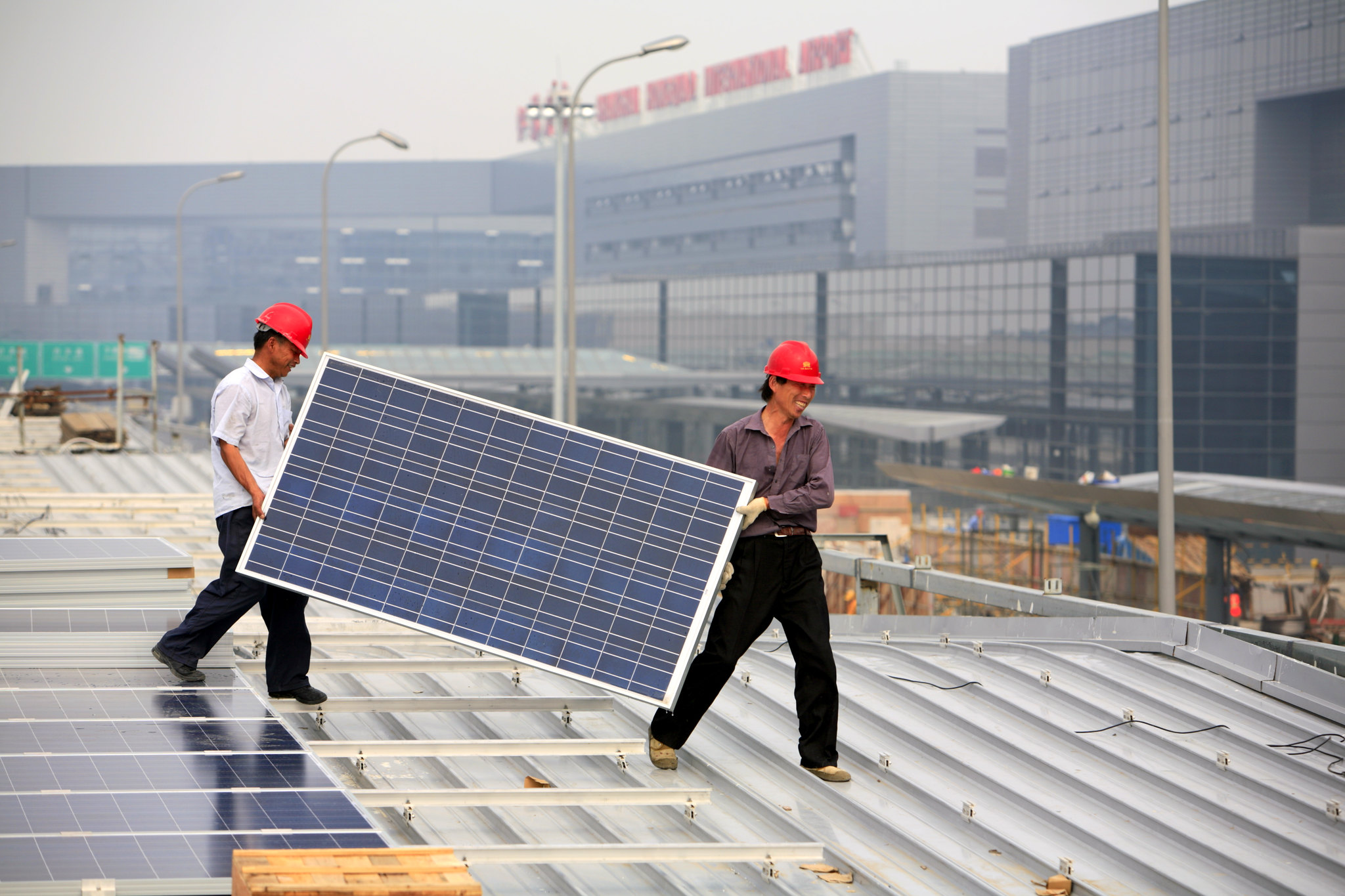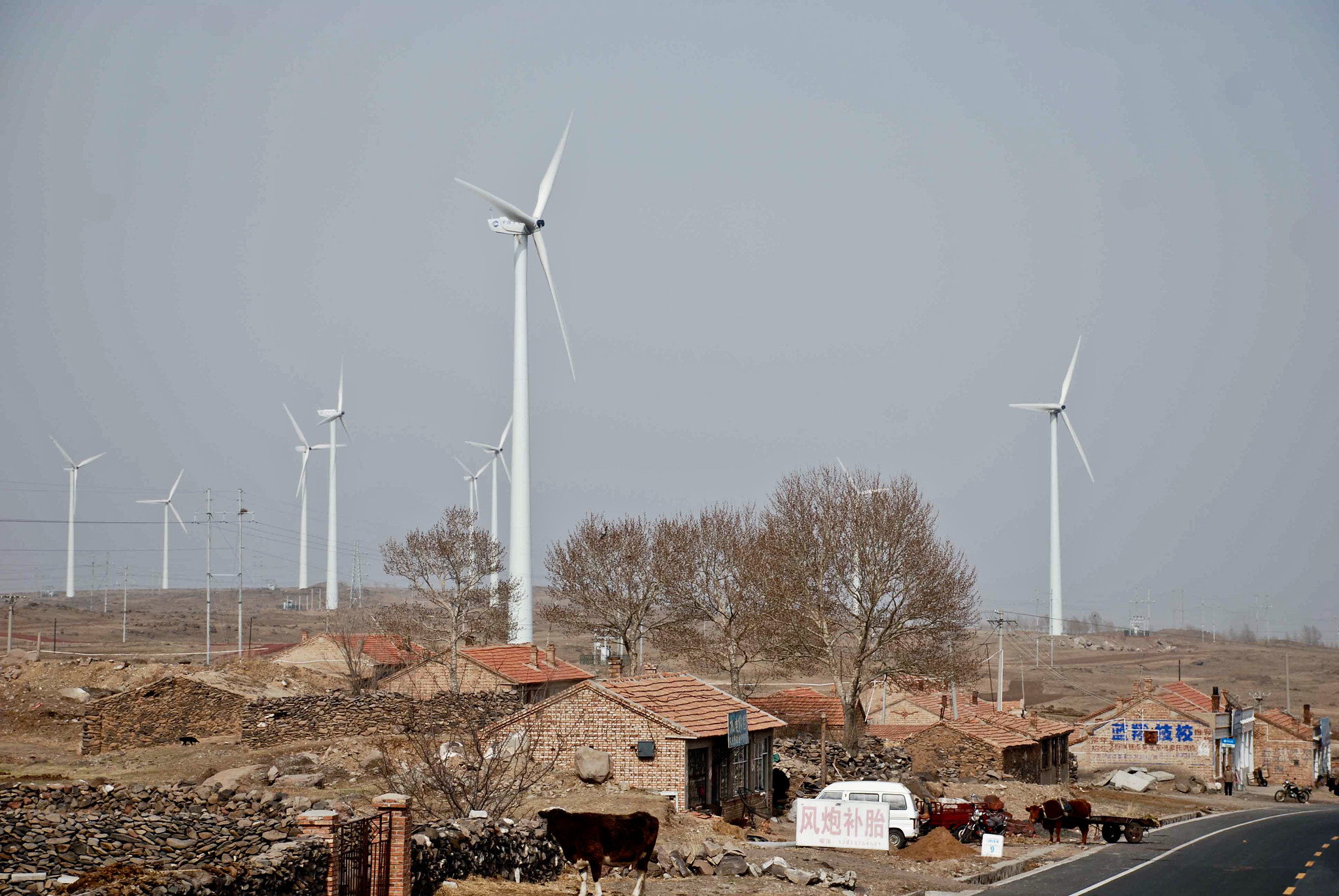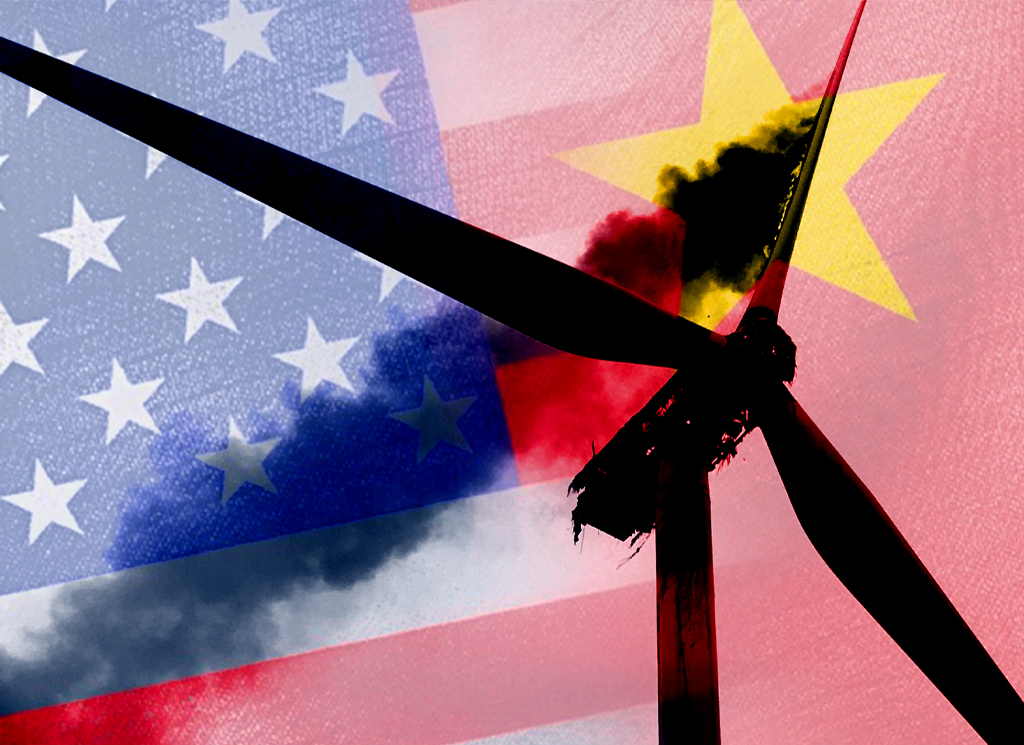The division of the world into nation states – and the competition it engenders between national gangs of capitalist robbers – is making a mockery of the fight against climate change. Capitalist politicians and commentators rarely admit this obvious truth, but sometimes it’s possible to read an article by the more astute representatives of capital that suggests a glimmer of an understanding. One such article recently published in the Financial Times (FT) is titled ‘How China cornered the market for clean tech’.
The authors start with a survey of China’s ascent in the clean tech sector. Western politicians, for public consumption, regularly castigate China for doing too little to cut carbon emissions. But the FT arrives at precisely the opposite conclusion: China is doing too much. Why? Because its rise in the sphere of green tech “poses a massive competitive threat to western manufacturing industries.”
And so, this mouthpiece of capital concludes, we face a choice. “On one hand, you really want to protect these industries [in the West],” the FT explains, quoting a Hong Kong-based energy analyst. “On the other hand, you’ve got wildfires in the Mediterranean. What do you do?”
It is a real conundrum: “What do you do?”
You can protect western industries, profits and market share from Chinese competition. But in so doing, rather than pooling technology and resources to fight climate change, western industry must disentangle itself from Chinese clean tech, resting for longer on polluting domestic industries, whilst striving to crush China’s green sector.
But then, on the other hand, “you’ve got wildfires in the Mediterranean” as the FT blithely puts it. Or rather, you have wildfires everywhere, and millions, perhaps billions of lives and livelihoods that are threatened, alongside entire ecosystems.
Here it is – put plainly and simply – by the thinking strategists of capital themselves: we can either protect our national capitalist interests, or we can fight climate change. We cannot do both. And, in fact, on the basis of capitalism, there is no choice at all. Each national gang of capitalists is compelled to follow the line that leads to their own greatest short-term profit, pursuing their narrow ‘national interests’ at the expense of their competitors.
Their ‘pledges’ evaporate into hot air. In their protectionist struggle for markets and spheres of influence, the ruling class are marching, eyes wide open, down a path that guarantees the most disastrous consequences for humanity.
Chinese ascendency
 Chinese competition is a problem created by the short-termist profit seeking of the western capitalists themselves / Image: Climate Group, Flickr
Chinese competition is a problem created by the short-termist profit seeking of the western capitalists themselves / Image: Climate Group, Flickr
Briefly put, the problem, as the FT sees it, is as follows: Chinese industry has developed a dominant position in the world market in important parts of the clean tech sector. According to the figures in the article, China produces 90 percent of the world’s rare earth elements, 80 percent of solar panel production, and 60 percent of wind turbines and electric car batteries.
It controls 70 percent of the refined cobalt market, nearly 60 percent of refined lithium, and over 40 percent of refined copper: all vital for ‘clean’ technologies. In some sectors, China’s domination approaches 100 percent.
Chinese competition is a problem created, of course, by the short-termist profit seeking of the western capitalists themselves. For decades, the latter off-shored manufacturing to where labour is cheapest and environmental and other legislation is scantest. They extended supply chains in pursuit of razor-tight margins.
The ascendant Chinese capitalist class acted otherwise. They have carefully studied the methods of western capitalists, adopted their technologies, and poured enormous state subsidies ($125 billion in the electric vehicle sector alone) into developing domestic monopolies that vertically integrate the whole supply chain from raw material to the finished product. By comparison, in the past seven years the US government subsidised its entire renewable energy sector to the tune of just $15.6 billion.
“The rest of the world was not prepared for that,” complains one of the FT’s go-to experts. “If you work on a free market basis, you can’t move so fast.” This is a significant admission: even a capitalist organ like the FT does not believe that the free market can act with the speed necessary to solve climate change.
Fairly or unfairly, the fact is that now western monopolies are faced with stiff competition from Chinese giants like the electric vehicle behemoth BYD, and the world’s largest lithium battery manufacturer CATL.
This poses a twofold problem before the western capitalists. On the one hand, they are in direct competition with Chinese capitalists for markets in these emerging clean technologies. As markets are not infinite, western industry can only grow by seeking to crush Chinese competition and squeeze it out. Green industry in the West can only grow at the expense of green industries elsewhere.
The other side of the problem is no less tricky: western economies and the Chinese economy are completely interdependent. The world economy is more integrated than ever before. As the fight for spheres of influence and markets between China and the West hots up, this interconnected whole threatens to become severed into competing hostile blocs, with devastating implications for the world economy in general, and the clean tech sector in particular.
Such is the utterly reactionary role of the nation state, the perpetuation of which is incompatible not only with human progress, but with the very existence of human civilisation.
Water, water everywhere
We might naively ask: whatever their provenance, is it not a good thing if industry (even Chinese industry!) churns out huge numbers of solar panels? We are engaged in a race against time to stop climate change, after all, and the more clean tech, the better, right?
But in asking such a question, we would be forgetting that capitalists do not produce solar panels in order to create green energy. No, capitalists that produce solar panels do so for the same reason that other capitalists produce barrels of oil, cluster munitions, cigarettes or anything else: to sell them and make a profit. And demand for solar panels does not at all depend on the scale of humanity’s need for these devices, but rather on the size of the market.
The problem is, none of the capitalists knows the size of this market, and therefore there inevitably arrives a point where production outstrips demand, and capitalism is seized by a crisis of overproduction. Just as the galloping advance of Chinese industry glutted world steel and aluminium markets, now it has glutted the solar panel market. The problem of overproduction is further exacerbated in that most renewables have a low replacement rate once installed, and therefore while demand may boom for a time during the ‘green transition’, it quickly falls off leading to enormous overproduction plunging the sector into crisis.
According to the FT, “around €7bn worth of Chinese solar panels are currently sitting in European warehouses… as supply outpaces demand… The stockpile is nearly enough to power all the homes in London and Paris, combined, for a year.”
When we sit back and consider this figure – casually thrown out there by the FT – in the light of the enormity of the challenge facing humanity, the effect is stupefying.
Enough solar panels are sitting in European warehouses to power every home in Paris and London. They could be installed tomorrow. And yet, they are not being and will not be installed, because solar panel markets are glutted and it is not profitable to do so.
Like the mariner lost at sea, we are left to cry in despair: “Water, water everywhere, nor any drop to drink!”
Fighting China or fighting climate change?
Instead of international cooperation to decide how to deploy this enormous potential, this overproduction is merely exacerbating bitter competition over scarce markets. “As China’s clean tech industry expands,” continues the FT, “analysts note distinct echoes of the geopolitical and economic disruptions caused by years of cheap Chinese steel, cement and aluminium flooding international markets…”
In this struggle between imperialist blocs, the US is flexing its economic muscle. But when the US slapped restrictions on the export of microchips to China, it soon learned that it too has economic vulnerabilities that China can strike at like pressure points on the human body.
 The US ruling class is trying to ‘decouple’ from China / Image: Asian Development Bank, Flickr
The US ruling class is trying to ‘decouple’ from China / Image: Asian Development Bank, Flickr
China responded by restricting exports of gallium and germanium. The global gallium market is worth a mere $2 billion – small change on the scale of the world economy. And yet, this is one of the rare elements that China has established a near 100 percent monopoly over, and which is vital to certain high tech industries, especially in the aerospace and defence sector.
The restrictions were a “shot across the bow”, in the words of the US think tank CSIS. And the shock it provoked has forced the strategists of US capitalism to sit up and pay attention.
On the one hand, the US ruling class is trying to ‘decouple’ from China, starting with industries most closely connected to defence and national security. On the other hand, as western industries continue to pursue the switch to clean energies, they inevitably become more dependent and intertwined with those industries in which China currently predominates. That is, they become more exposed than ever to their great rival.
In the opinion of the FT, the West can deploy all the protectionist measures it likes, but it will struggle to break this interdependence:
“Most believe it will be impossible for Europe to meet its ambitious climate change goals without maintaining a very deep relationship with Beijing. Even the US — which boasts deeper pockets and stronger political support to decouple from China — will face a mammoth task in creating a new clean tech supply chain that excludes China.”
The result? According to some of the experts that the FT has spoken to, “ultimately western policymakers will face a choice between the competing strategic priorities of trying to decouple from China to achieve their national security goals, or co-operating to achieve their climate and economic goals.”
In less euphemistic language: they can either pursue their imperialist interests, or the interests of humanity, and not both. And, indeed, the US, the EU and China are already engaged in a bitter protectionist struggle to defend their mutual imperialist interests. We should add that these hypocrites even dress up these protectionist measures in a ‘green’ veneer! We need only note Biden’s Inflation Reduction Act, and the EU’s Carbon Border Adjustment Mechanism.
This is all a piece of madness, but one that adds up wholly from the logic of capitalism, with its profit motive and its division of the world into competing nation states. What is needed is a socialist revolution to sweep away capitalism, and with it all these divisions, integrating the technical resources of the whole world into a single, giant economic plan aimed at solving this crisis.
On that basis, where production ceases to operate for profit, we could immediately install all those solar panels presently sitting idle in Europe’s warehouses – and we could do a lot more besides.
We could go on, in a short time, to generalise all best practices and expertise in the clean tech, energy and agriculture sectors. We could establish new facilities and new infrastructure in every continent almost overnight. And we could create a world in which there is a sustainable superabundance of all the necessities of life.
But for this world to come about, the sun must set on capitalism.

